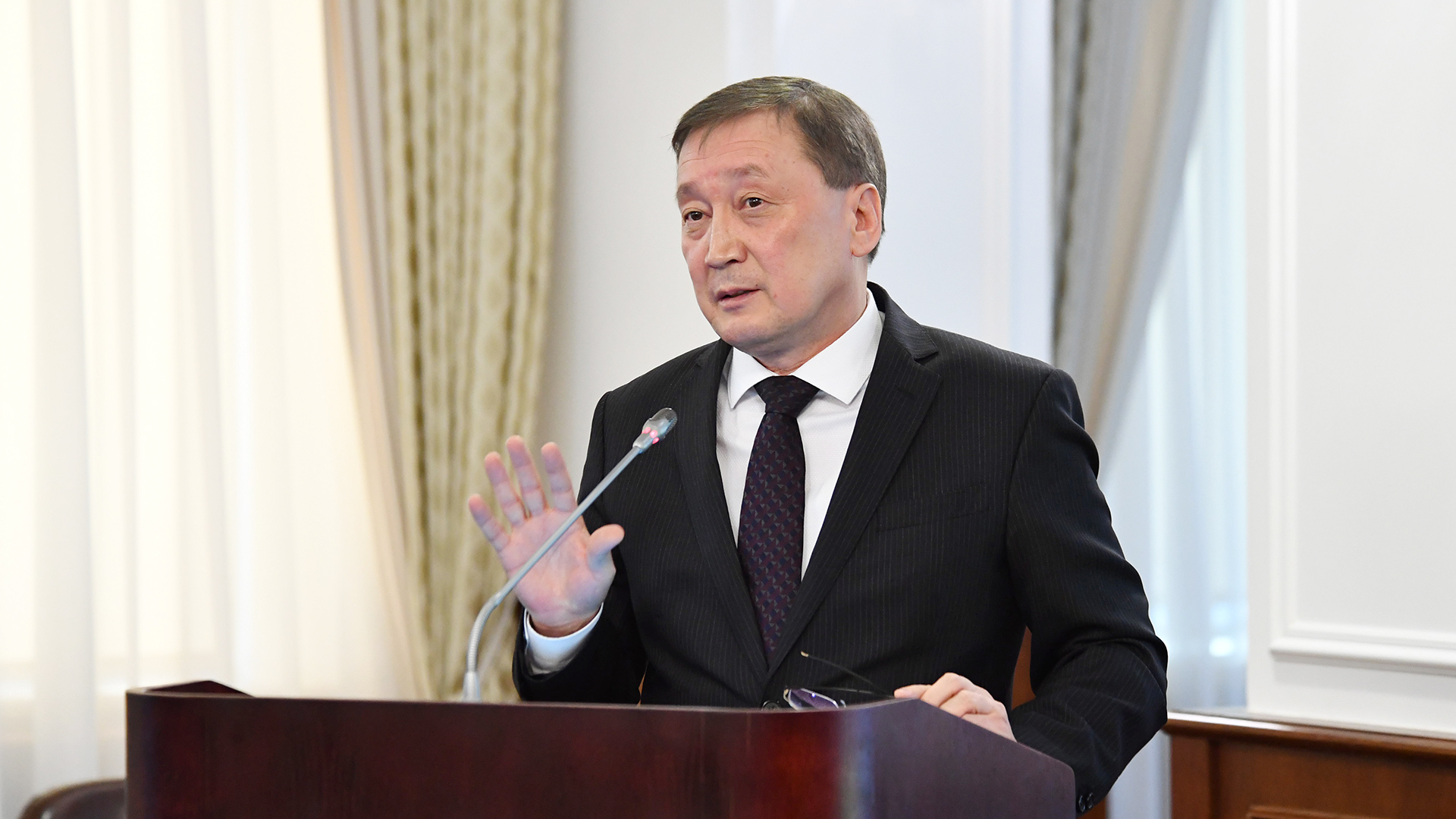17 March 2020, 11:36

At the Government session chaired by Prime Minister Askar Mamin, Minister of Agriculture Saparkhan Omarov announced proposals to stimulate the agricultural sector.
At present, the State Agro-Industrial Complex Development Program for 2017-2021 has created the necessary conditions for saturating the domestic market with domestic food products. So, subsidization of the agro-industrial complex is carried out in 16 directions in 47 types of subsidies.
According to Omarov, state support is provided through investment subsidies, subsidizing interest rates on loans and leasing, subsidies to increase the productivity of livestock products and the cost of raw materials handed over for processing, and basic subsidies for cheapening the cost of mineral fertilizers, pesticides and seeds also apply. There is preferential lending through the development institutions of the KazAgro Holding.
In addition, there are preferential tax regimes for agribusiness entities, in particular, a special tax regime for legal entities and a simplified single land tax for peasants and farms.
“In 2019, the amount of state support amounted to about 324 billion tenge, taking into account the closure of debts of previous years. For 2020, the amount of subsidies is 294 billion tenge,” the minister noted.
At the same time, work will continue on the diversification of crops based on the balance of consumption and the provision of the domestic market with food, focusing on the production of highly profitable crops in the framework of import substitution and fodder crops.
At the same time, moving away from monocultures to the production of highly profitable crops will also provide an increase in profitability from 1 hectare.
For the densely populated southern regions, gardening will be a development priority. It is planned to increase the area of orchards from 65 to 88 thousand hectares and increase the production of apples and fruit products from 395.5 to 684 thousand tons. This will ensure employment from 65 to 88 thousand workers.
“In order to ensure stable supply of vegetables, the area of greenhouses will be increased from 1236.7 to 1,700 ha. An increase in the production of vegetables of closed ground from 216.8 to 595 thousand tons will reduce seasonal price increases and provide 34 thousand people with jobs,” the minister said.
At the same time, existing investment and industry subsidies, as well as concessional lending, create sufficient economic conditions that stimulate the laying of gardens and the commissioning of modern greenhouse complexes.
In addition, there is great development potential in the sectors of beef cattle breeding and sheep breeding. Here, family farming will be the basis of the production model. Farms will unite in marketing, training and veterinary services. All necessary resources, such as the presence of natural pastures with reserves of surface and groundwater, labor resources in the form of the rural population, are sufficient for the development of the livestock industry and make the industry attractive for investors.
According to Omarov, the implementation of measures for the development of livestock farming will create a new class of livestock farmers, which will ensure the growth of farms from 20 to 65 thousand, increase the number of cattle from 7.4 million to 11.2 million heads, the number of sheep from 19.1 million heads to 24.3 million heads, increase the production of beef and mutton from 672 thousand tons to 902 thousand tons and ensure an increase in rural employment from 100 to 325 thousand people.
To achieve rapid growth in the dairy sector, the ministry proposes to annually finance and introduce at least 25 industrial dairy farms from 600 animals and about 40 family farms.
“In accordance with the plans, in just 5 years, 125 industrial complexes will be commissioned in areas within the dairy belt, which together will produce more than 700 thousand tons of additional milk and create an additional 8 thousand jobs,” Omarov informed.
Along with this, to develop poultry farming, measures are being taken to further increase the production of poultry meat for subsequent import substitution.
In total, within the framework of the program, poultry meat production will be doubled over 5 years and amount to 530 thousand tons. The main focus will be on the implementation of industrial farms. To accelerate the pace of production growth, work is underway to attract strategic investors.
According to the Minister of Agriculture, at this stage there are 11 specific projects, of which construction is already underway on 8 investment projects, their commissioning is planned before the end of the year. For 3 projects — in the process of designing and solving financing issues.
“Together, these projects will increase the volume of domestic poultry meat production by an additional 163 thousand tons and create more than 3 thousand jobs,” said the head of the department.
In general, the implementation of these measures will be accompanied by effective measures of state support for business, affordable credit resources, as well as the removal of barriers to the implementation of the plans. The multiplicative effect will be the development of the agro-industrial complex as a whole, as well as an increase in the income of the rural population.
Stay updated about the events of the Prime Minister and the Government of Kazakhstan - subscribe to the official Telegram channel
Subscribe